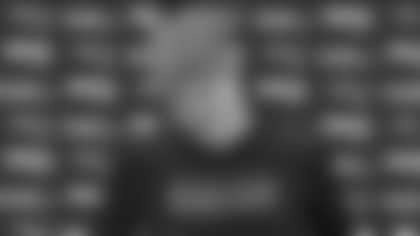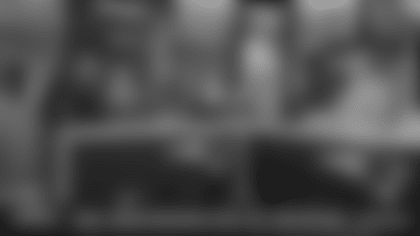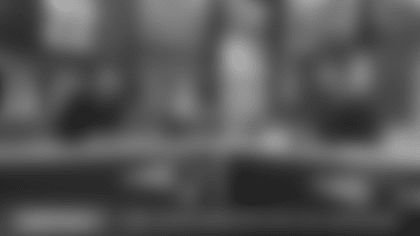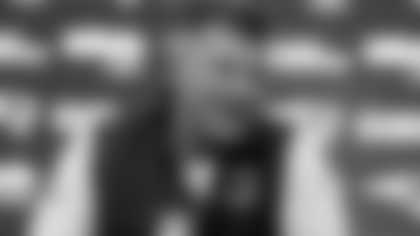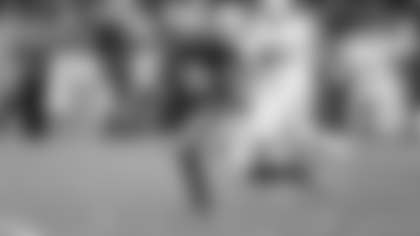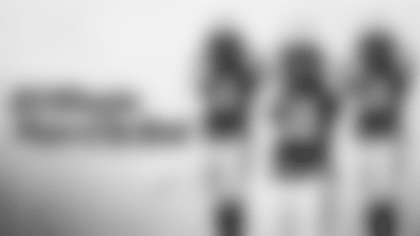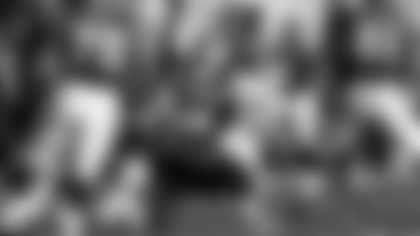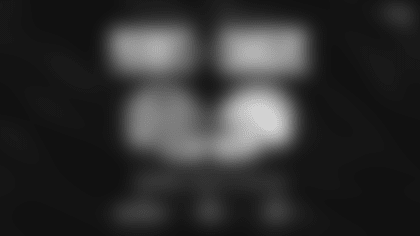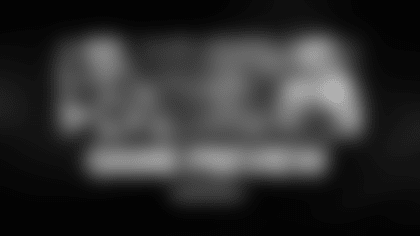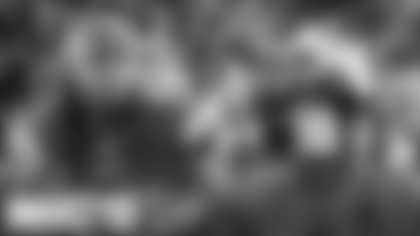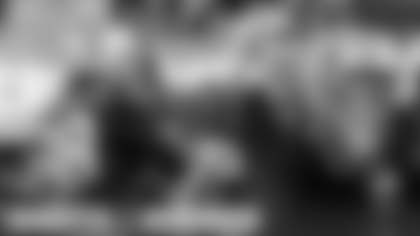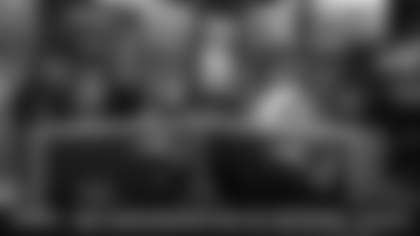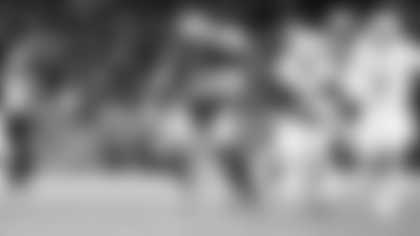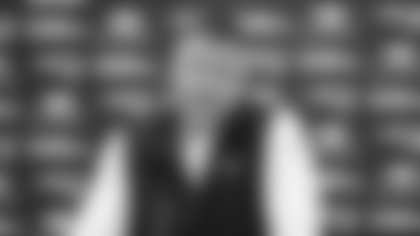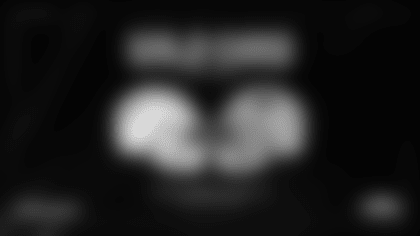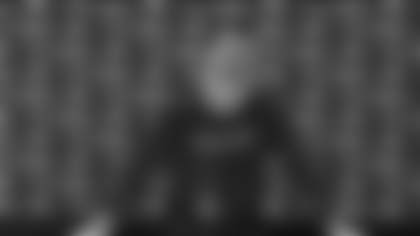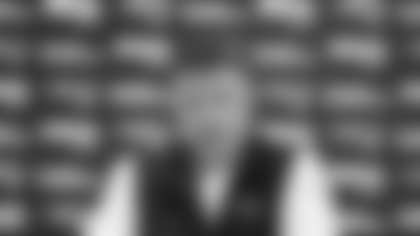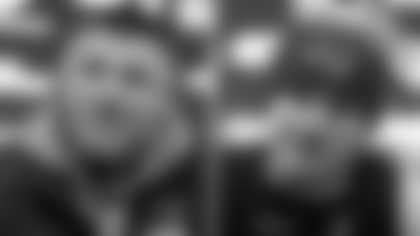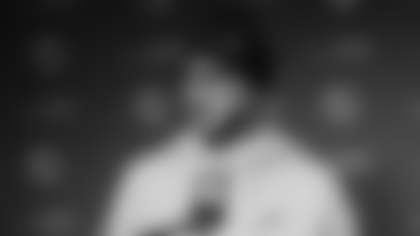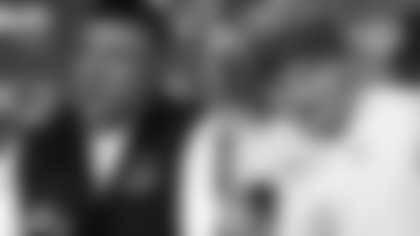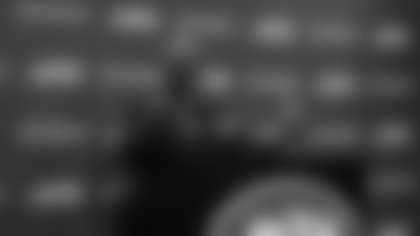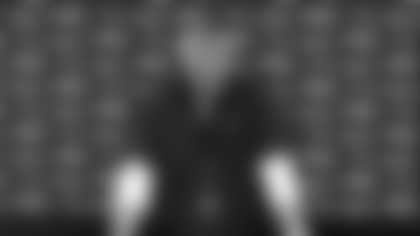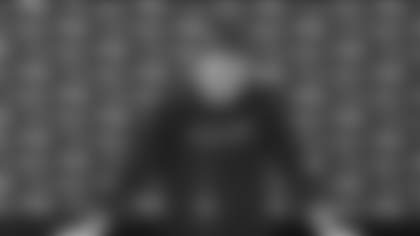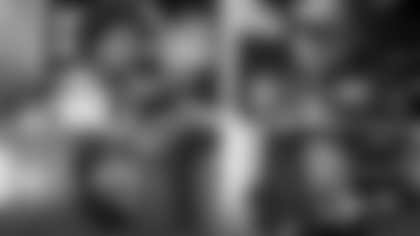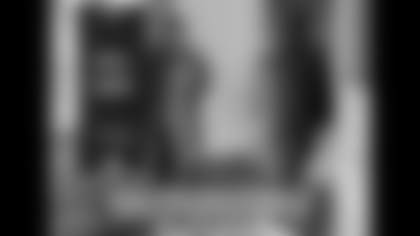DIRECTOR OF PLAYER PERSONNEL NICK CASERIO
VIDEO PRESS CONFERENCE
April 23, 2020
NC: First of all, thanks for everybody for sticking around. I know it's a long day. Before we get to the football part of it, with everything that's been going on over the past several weeks puts football in perspective. What we do is probably not as important as some of the other things a little bit more important in our lives, which is our family, our health and our faith. We're all blessed to be here in this situation here this evening. It's been hard for a lot of people throughout the country, but the service men and women and the people on the front lines from a health standpoint, in the hospitals, deserve more credit than these players we're going to talk about over the next few days. It's certainly unique but we are all very fortunate and blessed to be in the position that we're in and hopefully have our health and be able to enjoy the things in life that we sometimes take for granted. I know that I have in the past three or four weeks. It's been a blessing for me to be with my family on a daily basis and be around my daughters every day and ultimately that's more important than football and some of the things that we're going to talk about, but we'll certainly talk about them. But, I just thought it was appropriate to make some commentary there. So obviously, we made the trade here in the first round. Certainly, like most situations in years past, we're always ready to pick. It was a situation where we thought that the trade made sense, so it puts us in a position picking the top of the second round tomorrow with four third's. We still have some picks there at the end, the two fourth's, the four sixth's and the one seventh. We'll see how it all works out here tomorrow. I'm sure we'll be active here tomorrow and, we'll end up picking a player or two or three. Who knows how it goes. We have some flexibility going into tomorrow. We'll recalibrate where we are, what's left, kind of take a look at some of the different players.
I'd say overall process-wise, the league did a great job. Everything went pretty smoothly. I think everybody deserves a lot of credit in the league. They are a group that did a great job, the communication was pretty fluid. We really didn't have any gaps. What we tried to do is best replicate, to the best of our ability, replicate process in the draft room. I'd say we were able to do that here this evening. That's kind of where we are for tonight. Certainly take some questions here for a little bit. We don't have any players to talk about, but probably some things that we can hit here over the next few minutes.
Q. How much of a priority was it for the organization to move into the second round and you now have a second-round value?
NC: Yeah, I think we go into these drafts pretty open-minded. We really look at everything on a case-by-case basis. Like we talked about in the past, you always have to be prepared to pick, which we certainly were ready to pick. We had a handful of players we were discussing and the opportunity came up with the Chargers that we thought made sense. Each situation that comes up, we look at it on a case-by-case basis and we do what we feel is the best. I don't think we go into it and say, "OK, if this happens we're going to do this." We don't look at it that way. We just look at what's in front of us and make a decision, then we move forward with whatever decision that we make.
Q. Did you and Bill and the staff make that decision to pull off the trade once Justin Jefferson went to the Vikings?
NC: We were having discussions with the Chargers, and they went ahead. We kind of saw how the pick went. We were kind of on the clock at the time and we made the pick. In the end it worked itself out.
The Chargers put themselves in position to do what they wanted to do, and we thought it made sense. We could have very easily gone the other way and picked a player, which we would have done.
I don't think what happened in front of us necessarily dictated what we ultimately did. I think we just looked at the information that we had in front of us, went through it, made a decision to check out of it. So that's what we did.
Q: It's going to be a big day for you guys tomorrow. You broke down the picks, but how big is this with what you have accumulated here on day two?
NC: Yeah, right now we have five picks, they're kind of spread out a little bit, with one at the top of the second, then really kind of all littered throughout the third round. It's not the same but similar I think I'd say it was 2009. Like we ended up making those four second-round picks together. That was the [Patrick] Chung year. We took Chung at the top of the second round. We ended up picking four players in the second round. It just gives us some flexibility. You can move around in the middle there a little bit. Late-round pick is a late-round pick. You look at them all together, you basically have 12 picks in five rounds, so we'll see. Like I said, we're going to look at what's left, then kind of recalibrate, move around a little bit. We certainly have the ammunition, the flexibility to do so. Like most picks and/or trades, it's all player-driven, right? If there's a player you feel you need to move to get, you can go ahead and do it. We'll see how it all goes. I would expect us to pick more players tomorrow. How we pick them ultimately will be determined by what we're looking at and how much we actually end up moving.
Q. How important was it for you to bridge the gap between what you had at 23 and 87 with this trade? How important was that gap for you guys to shrink there?
NC: Not necessarily, because we have enough picks where if we had to move around. We have the four late-round picks. We had the three picks in the third round, fourth round. Kind of going back to what I said a little bit earlier, everything is looked at on a case-by-case basis. I would say it's more circumstance than anything else. This is where we are right now. At least we have an idea. We're sitting there at the top of the round here. We're five or six picks out; we're 37 or whatever it may be. It wasn't something that we said we definitively have to move, try to bridge that gap a little bit. I don't think that was the discussion. I think, like I said, if we didn't trade, we would have talked about the same thing, a player we picked at 23, then could have been talking about picking back in the second round possibly. I would say there wasn't any intentionality behind it. I think it's kind of just what the end result was.
Q. How did things go logistically with all the technology you were using tonight, particularly with the trade? I think making trades was one of the things everyone was most interested in how that was all going to go down.
NC: Yeah, great question. I'd say it actually went very similar to how it goes in the draft room. We were able to connect to the league. Essentially what you have to do is just make sure both sides of the trade are coordinated. You go through the league office, which you normally do anyways in the draft room. We're trading with the Chargers; here are the terms. They confirm it on the other side. From that perspective, it went pretty smoothly. The league did a great job. We went through some dry runs, a couple. Obviously, Monday we had the league testing a few things, on our own as well, to make sure what this communication would actually look like. Look, the power could go out tomorrow and we could be doing faxes. I would say today was pretty smooth. Everything was kind of moving along pretty smoothly there up until the first 10 picks, it was pretty quiet. Everybody was kind of sitting around. Then you had the flip there at 13 and 14 with San Francisco and Tampa Bay, and you had a couple more trades that came up along the way. I think once people probably saw the trades, there wasn't any issues, they were more inclined to do it. For the most part I'd say it was pretty smooth. The league has done a great job in terms of handling that. Our IT department has done a great job here over the last few weeks just making sure it's as seamless as possible given the circumstances.
Q. Before the draft, Bill Belichick said there was great depth at the quarterback position. Based on how the board fell tonight, do you still believe there's great depth at that position going forward for the later rounds?
NC: I think there's a number of players kind of in a pocket here probably these next two to three rounds across positions. When go back and evaluate what happened tonight, six or seven tackles went, six or seven corners went, six receivers, four quarterbacks, which I think going into the draft, I think the expectation was that's probably how it was going to shake out. There are certain positions may have a little bit more left over here moving forward. Hopefully, we're in a position where there's still good football players that are available that we're able to pick. That's how we feel. We'll have to take it pick by pick here. There's still good players that are kind of littered throughout the draft here. Everybody just has to figure out what makes the most sense for their particular situation and their team, which is what we're trying to do.
Q. You've been in the room with Bill Belichick before. I'm wondering what virtual Bill is like? Anybody camped out with him?
NC: What, is anybody in a Winnebago [laughs]? I'd say a virtual Bill is similar to draft-room Bill. I'm not a room with him, so who is with him, I'm not sure. I think he's doing fine. I think he's doing OK. Like I said, the communication, going back to the question earlier, the communication was fairly smooth. Our group has worked together for a number of years. Everybody has an understanding of their responsibilities. We all have worked together well with each other for a number of years now. A lot of credit goes to the preparation and the people and work that's put in. Like I said, kind of going back to what we talked about earlier, kind of mentioned this the other day, talking to Megan O'Brien, we tried to replicate our draft process as much as possible and project it into a virtual situation. The more you normalize, keep things as normal as possible, is kind of like what we're dealing with right now day-to-day. We want to try to develop as much of a routine as possible, do as many things you normally would do, understanding there's some constraints. When you apply that to the draft, it's the same kind of mindset and principle. That's what we've tried to do.
Q: David Andrews announced tonight he'll be returning to football in 2020. Does the team have confidence in terms of him sliding back into the starting center position in 2020?
NC: Haven't seen that here yet, obviously. Look, David has been a good football player for our team for a long time. I would say we try not to look at anybody's individual situation, we try to look at kind of the overall, all-encompassing picture. What we've always tried to do is just add players, good football players, to our team that we think can help us. Sometimes it works the way you hope. Sometimes it doesn't. That's kind of the nature of what we do. David has been a great asset to our program, multi-year captain. There's a lot of things that he brings to the table. Nobody worked harder I would say in just his capacity in his role last year. He wasn't playing. The more players. And people that we have, like David Andrews, in the building, good for the Patriots and everybody else.
Q: Have you been learning to cut your own hair there?
NC: I've been cutting my hair since college, actually. You never know. Actually funny story – not to go off on a tangent, but I've been cutting my hair since college. One year I was actually going on vacation over the summer and the attachment fell off. Unfortunately, I didn't have a choice but to shave it all off. Kind of got used to it. It was my senior year at John Carroll, actually. Kind of got used to it. Some people have their wives do it. I just do it myself. Just make sure you have a mirror. Find a way. Like a book I'm reading: Everything is Figure Outable. Try to figure out a way.
Q. Rob Gronkowski was traded yesterday for a draft pick. How do you determine the trade value of a retired player?
NC: Yeah, I think trades always kind of take on a life of their own. You just try to figure out, either you're comfortable with the compensation that's being offered and provided or you're not. You make a decision and move forward. I think that's how we've always approached trades, whether it's veteran players or during the draft. There's no set formula for anything like that. You take the information you have, you process it, you talk about it, you make a decision and you move forward, which is essentially what we tried to do in that particular case.
Q: It's been a long time since you took a tight end prior to the fifth round in the draft. I know you are not necessarily drafting for need, but when do positions become a priority? Could that be a position of priority?
NC: There's never one particular position that's priority. I think you go through your draft board. We grade the players on their respective positions, then you compare players across positions. We take the information that we have and we try to make the best decision that we feel is best for our team. If it happens to be a tight end, it's a tight end. It it's another position, it's another position. I mean, there's no set formula. We just try to go through it. That's why we have a grading system in place so that you assign grades because what you don't want to do is assign a certain grade, maybe it's one position that's a little bit higher than the other, or it's a little bit lower, then you take a player out of scale. Like, is that the best thing for your team? Ultimately you just have to answer those questions, do what you feel makes the most sense.
Q: Do you feel at all if that position needs addressing? You didn't get a lot out of it last year after a decade of huge production from that spot because of the last guy you took with a high pick there.
NC: Yeah, look, in the end we all do what we always do, which is we'll make the decisions that way feel are best for our football team, however they manifest themselves.


